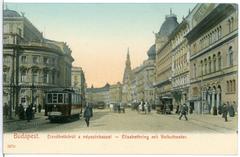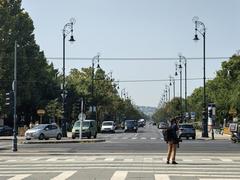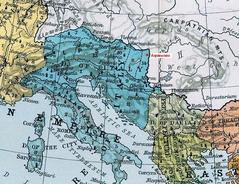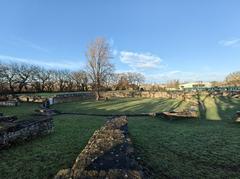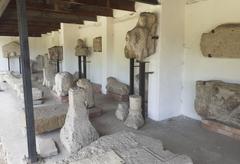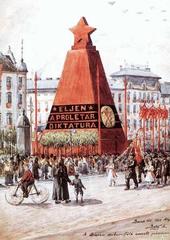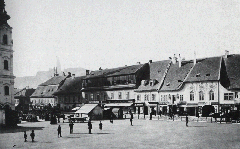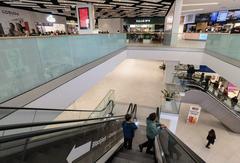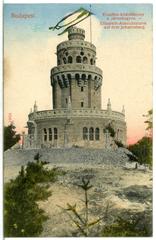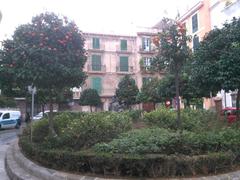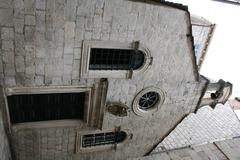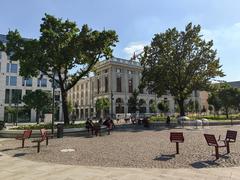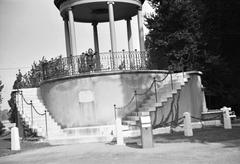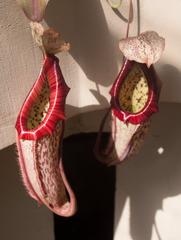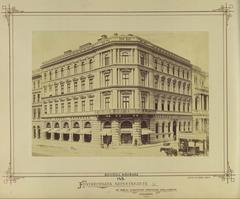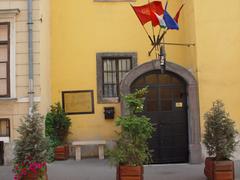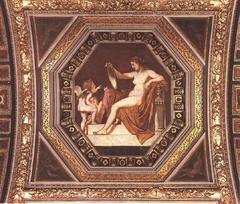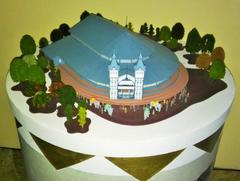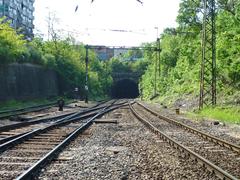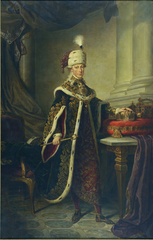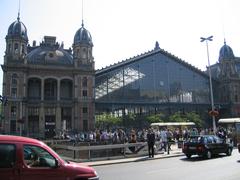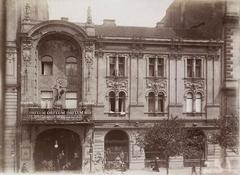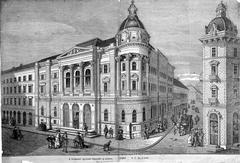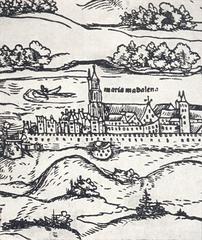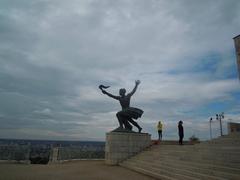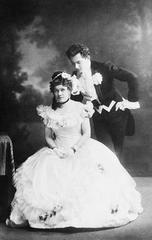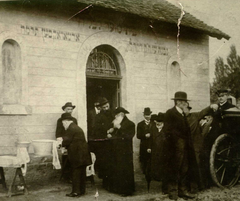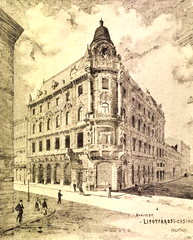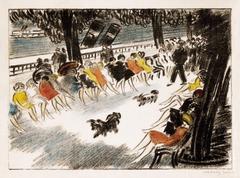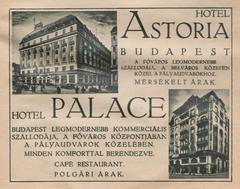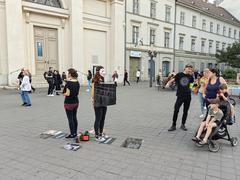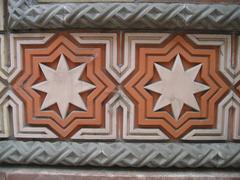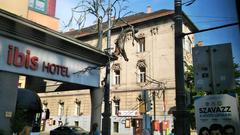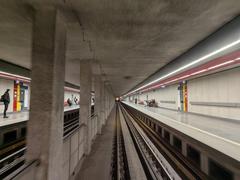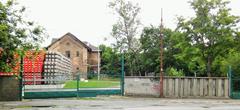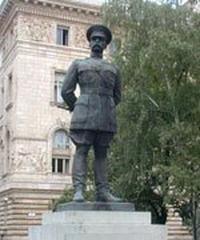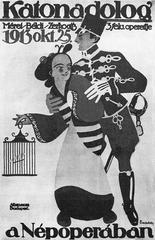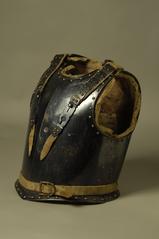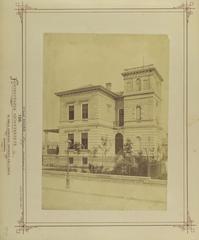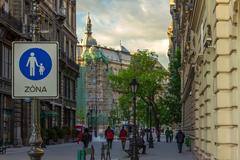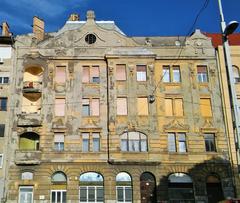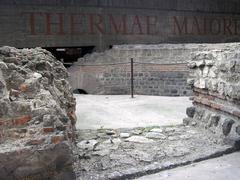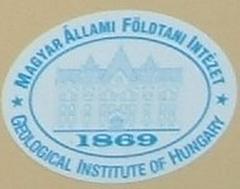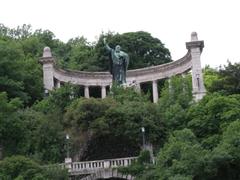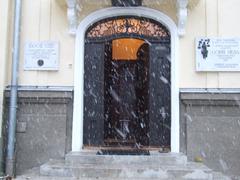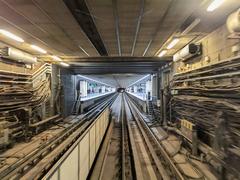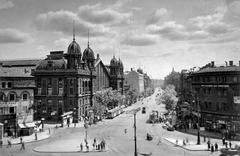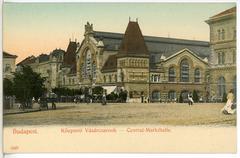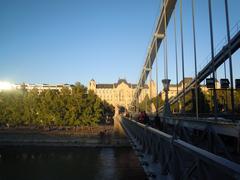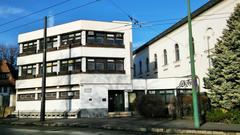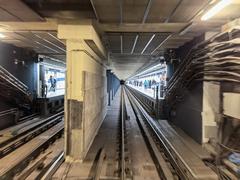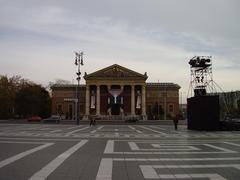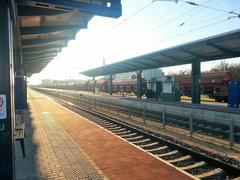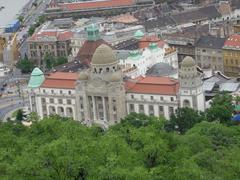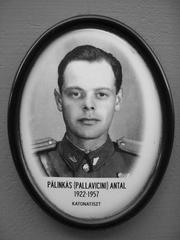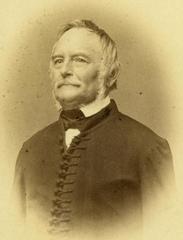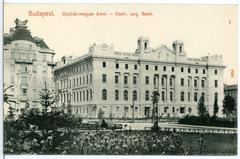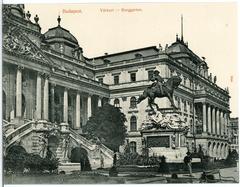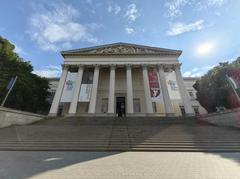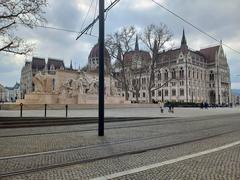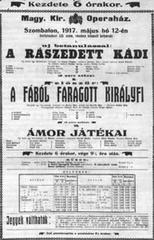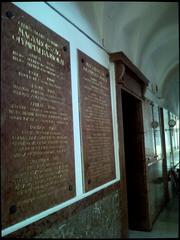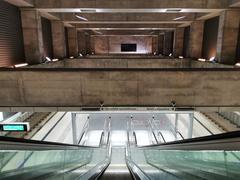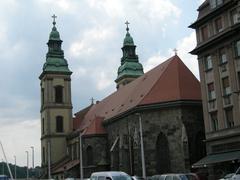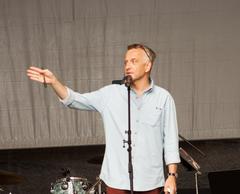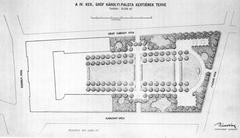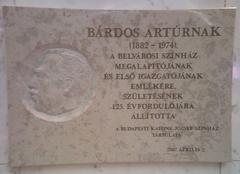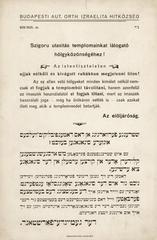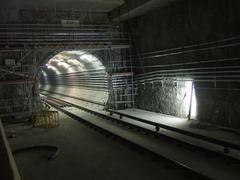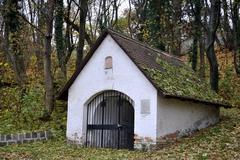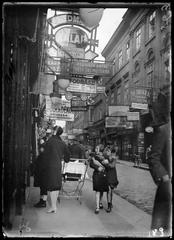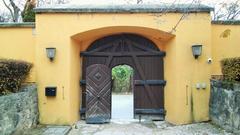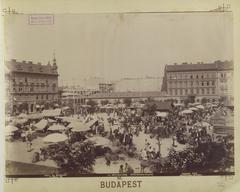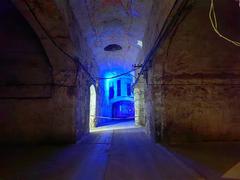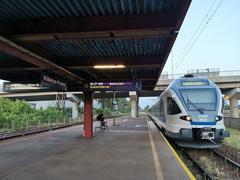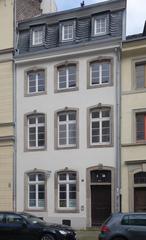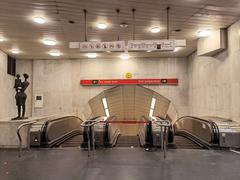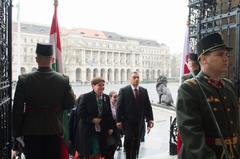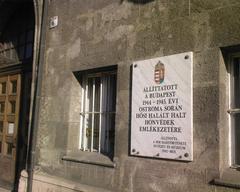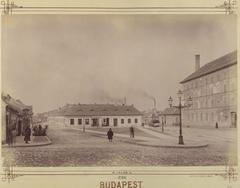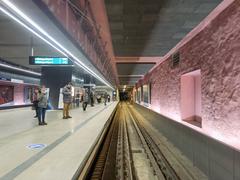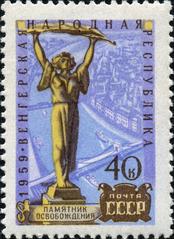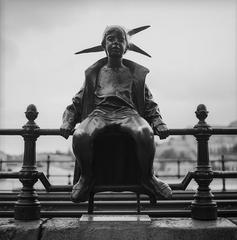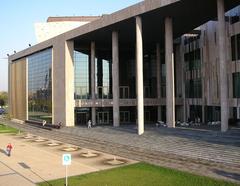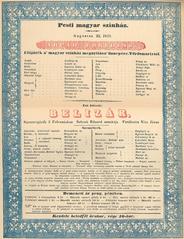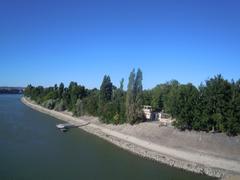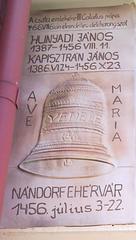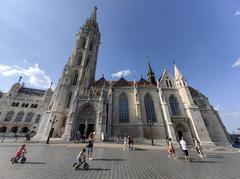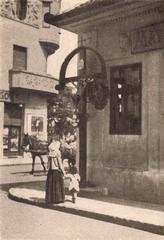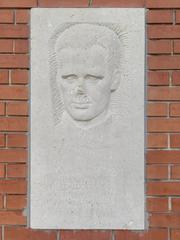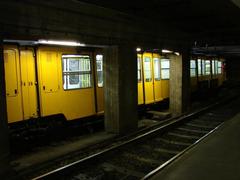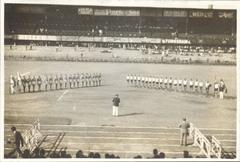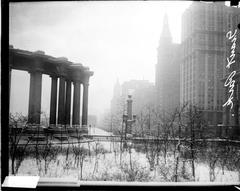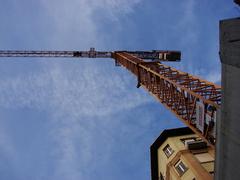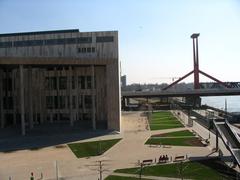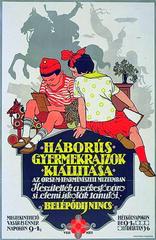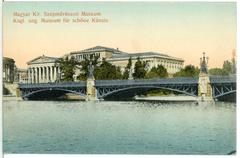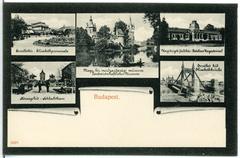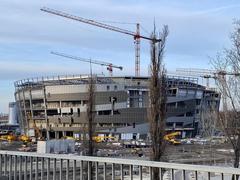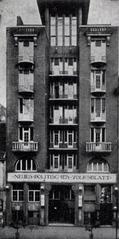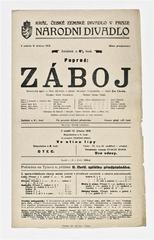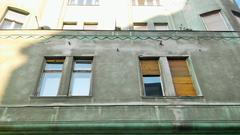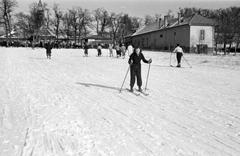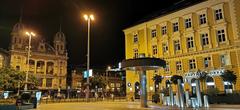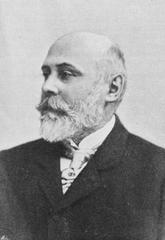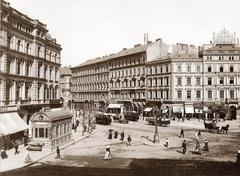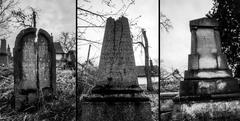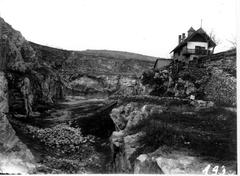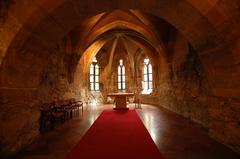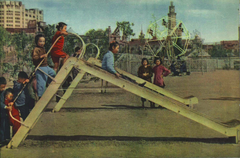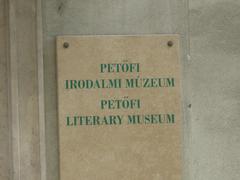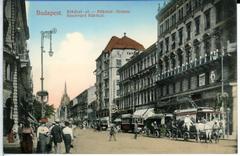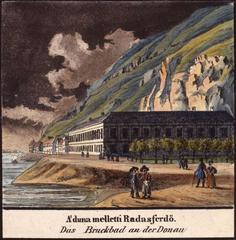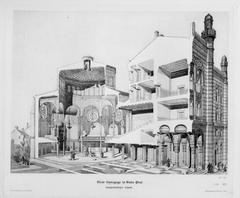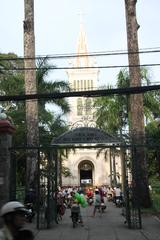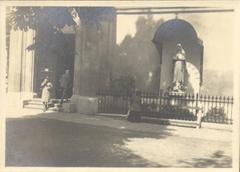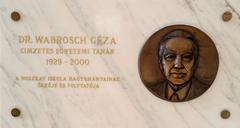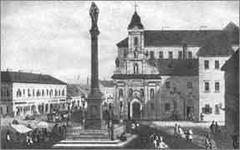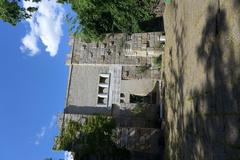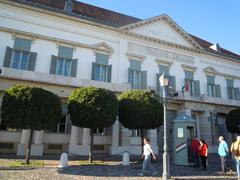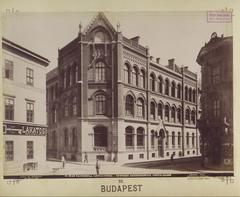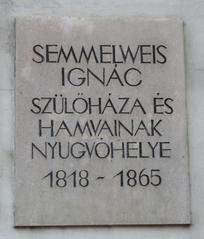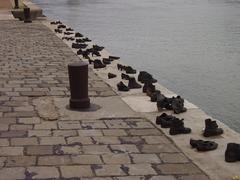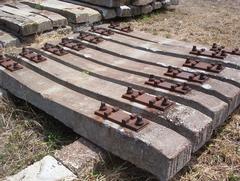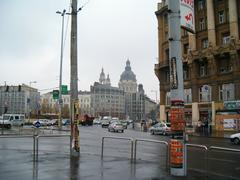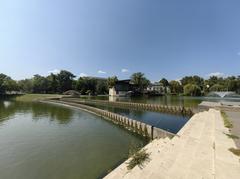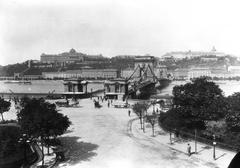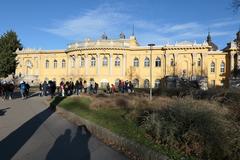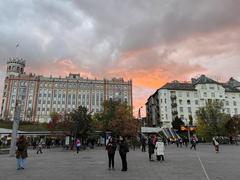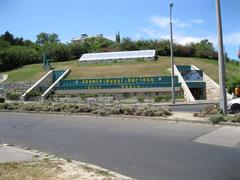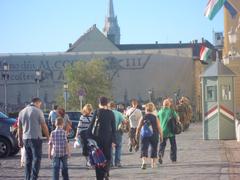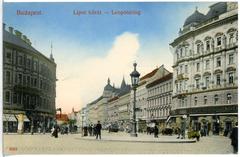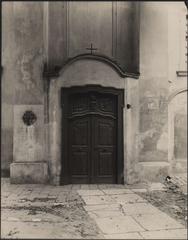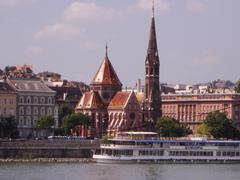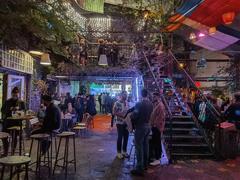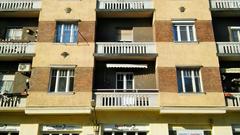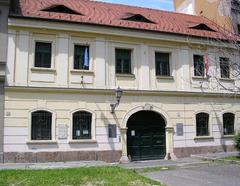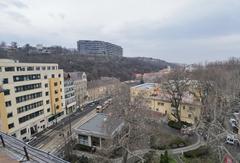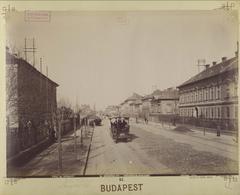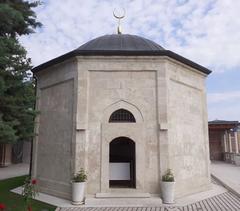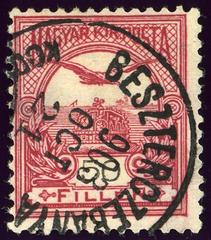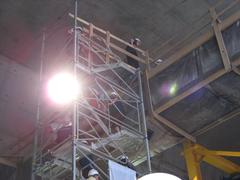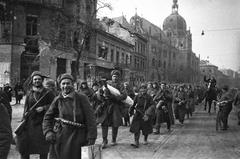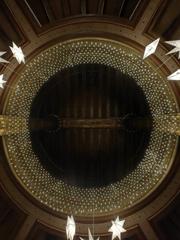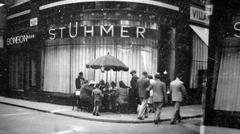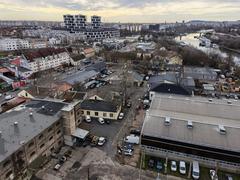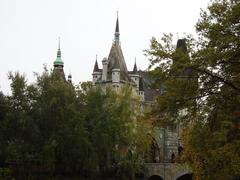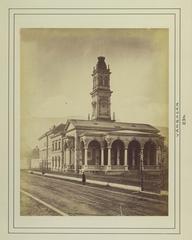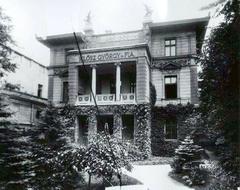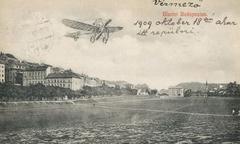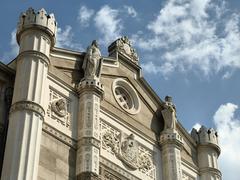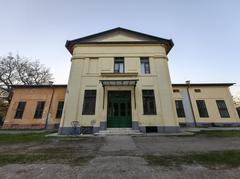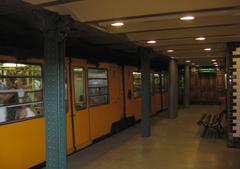Israeli Cultural Institute Budapest: Visiting Hours, Tickets, and Comprehensive Tourist Guide
Date: 03/07/2025
Introduction: History and Significance
The Israeli Cultural Institute (ICI) Budapest is a pioneering cultural center dedicated to promoting Israeli art, education, and intercultural dialogue in Central Europe. Established in 2010 through collaboration between the Jewish Agency for Israel and philanthropist Motti Zisser, the ICI was the first institute of its kind in Europe. Budapest was chosen for its significant Jewish population—the fourth largest in Europe—most of whom reside in the capital (Ynetnews; JPost).
Strategically situated at Paulay Ede utca 1, within the Mala Zisser House and close to Budapest’s historic Jewish Quarter, the Institute is easily accessible and fully adapted for visitors with disabilities (Red Dot; Accessible Escapes).
The ICI serves as both a showcase of Israeli culture and a hub for education, community, and intercultural exchange. Its programming includes art exhibitions, concerts, lectures, Hebrew language courses, and community events. In recent years, the Institute has expanded with the Heritage Center—an interactive space dedicated to Israeli history and the legacy of Theodor Herzl, Budapest-born founder of modern Zionism (dteurope.com).
Table of Contents
- Founding and Historical Context
- Architectural and Programmatic Vision
- Cultural Significance
- Integration with Budapest’s Cultural Landscape
- Notable Events and Milestones
- Visitor Information
- Programs and Activities
- Cultural Etiquette and Visitor Tips
- Safety, Accessibility, and Legal Considerations
- Frequently Asked Questions (FAQ)
- Conclusion and Call to Action
- References
Founding and Historical Context
The ICI was founded in 2010 as a unique initiative to foster Israeli-Hungarian cultural relations and to serve the needs of Budapest’s vibrant Jewish community. The Institute operates as a social and educational hub, enhancing Jewish identity and promoting intercultural dialogue.
Governance includes representatives from the Jewish Agency, local community leaders, and Israeli philanthropists, ensuring inclusive and diverse programming (Ynetnews).
Architectural and Programmatic Vision
The Institute’s modern architectural design supports a broad range of activities, including art exhibitions, concerts, lectures, and language classes (Red Dot). Facilities include multi-purpose event spaces, a library, a café, and classrooms, all housed in a fully accessible venue.
Collaborations span Jewish and Arab Israeli artists, local Hungarian creatives, and international partners—emphasizing diversity and mutual understanding.
Cultural Significance
Strengthening Jewish Identity and Community
ICI is a cornerstone of Jewish life in Budapest, offering safe and welcoming spaces for youth, families, and the wider community to engage with Israeli culture and heritage (JPost).
Introducing Israeli Culture to a Wider Audience
Through exhibitions, film screenings, concerts, and lectures, the ICI introduces Israeli culture to Hungarians of all backgrounds. Notable events include concerts by prominent Israeli musicians and cross-cultural collaborations with Hungarian and Roma artists (Ynetnews).
Education and Social Impact
The ICI offers Hebrew language courses, lectures on Israeli society, and a variety of workshops—open to all, including tourists and expatriates (dteurope.com).
Integration with Budapest’s Cultural Landscape
Budapest is renowned for its museums, galleries, theaters, and festivals (Budapest Your City Visit). The ICI adds a distinctive Israeli and Jewish dimension, collaborating with groups such as the Hungarian-Israeli Friendship Association (Embassy of Israel in Hungary).
Notable Events and Milestones
The Institute’s event calendar features art exhibitions, film festivals, lectures, and concerts. The inaugural event featured Israeli cellist Hillel Zori and Hungarian Roma pianists, symbolizing creative collaboration (Ynetnews). The ICI’s calendar aligns with Jewish, Israeli, and Hungarian holidays, fostering shared cultural celebrations.
Visitor Information
Location and Access
- Address: 1061 Budapest, Paulay Ede u. 1., Mala Zisser House (xpatloop.com)
- Public Transport: Nearest metro station is Opera (M1 line); numerous tram and bus routes serve the area (travelnotesandbeyond.com)
- Parking: Limited street parking; public garages nearby
Opening Hours and Admission
- Regular Hours: Monday–Friday, 10:00 AM–6:00 PM (some events extend hours; closed on public holidays)
- Admission: Free for most exhibitions and public spaces; some special events, workshops, or film screenings may require tickets or advance registration (izraelikultura.hu)
Facilities and Accessibility
- Fully accessible building: Ramps, elevators, accessible restrooms, and designated seating
- Amenities: Café, library, free Wi-Fi, multilingual staff (Hungarian, English, Hebrew)
- Guided Tours: Available by prior arrangement
Programs and Activities
- Art Exhibitions: Contemporary Israeli and Hungarian artists, rotating displays
- Concerts and Performances: Jazz, classical, and cross-cultural events
- Film Screenings: Israeli cinema, documentaries, and Q&As
- Hebrew Language Center: Courses for all levels and ages, with specialized teacher training programs (dteurope.com)
- Heritage Center: Interactive exhibits on Israeli history and Theodor Herzl, featuring smart screens and engaging content
- Family and Community Events: Workshops, storytelling, and children’s clubs
Cultural Etiquette and Visitor Tips
- Dress Code: Casual for most events; smart-casual for formal receptions
- Language: Hungarian is widely spoken, but English and Hebrew are also used at the Institute. Learning a few Hungarian greetings is appreciated (triptobudapest.hu)
- Photography: Permitted in most areas; check signage or ask staff during performances
- Tipping: Not required at the Institute, but rounding up at the café is appreciated (headout.com)
Safety, Accessibility, and Legal Considerations
- Safety: Budapest is safe for travelers. The Institute maintains secure premises, with staff and security measures in place (travelnotesandbeyond.com)
- Accessibility: The Institute adheres to EU standards and the Equal Treatment Act of 2003 (Accessible Escapes)
- Practical Travel Tips: Budapest uses the Forint (HUF); major cards are accepted. Tap water is safe, and public transport is efficient (triptobudapest.hu)
Frequently Asked Questions (FAQ)
Q: What are the ICI Budapest opening hours?
A: Monday–Friday, 10:00 AM–6:00 PM (check for updates during events or public holidays).
Q: Is admission free?
A: General admission is free; some events may require tickets.
Q: Is the Institute wheelchair accessible?
A: Yes, with ramps, elevators, and accessible restrooms.
Q: Are guided tours available?
A: Yes, by advance booking.
Q: How do I get there using public transport?
A: Opera (M1) metro station is nearest; several tram and bus lines serve the area.
Conclusion and Call to Action
The Israeli Cultural Institute Budapest is a cornerstone of cultural exchange and education, bridging Hungarian and Israeli heritage. Its diverse programming, accessible facilities, and central location make it an essential stop for anyone interested in Budapest’s Jewish heritage or contemporary Israeli culture.
Plan your visit by consulting the official website for updated event calendars and ticketing information. For the best experience, consider combining your visit with nearby attractions such as the Dohány Street Synagogue and Andrássy Avenue.
Stay connected by following the Institute on social media and using the Audiala app for audio guides and interactive content. Immerse yourself in the cultural richness of Budapest at the ICI!
References
- Ynetnews
- JPost
- Red Dot
- Accessible Escapes
- DTEurope
- XpatLoop
- TravelNotesAndBeyond
- Alle Travel
- izraelikultura.hu
- triptobudapest.hu
- headout.com
- Budapest Your City Visit
- Embassy of Israel in Hungary
